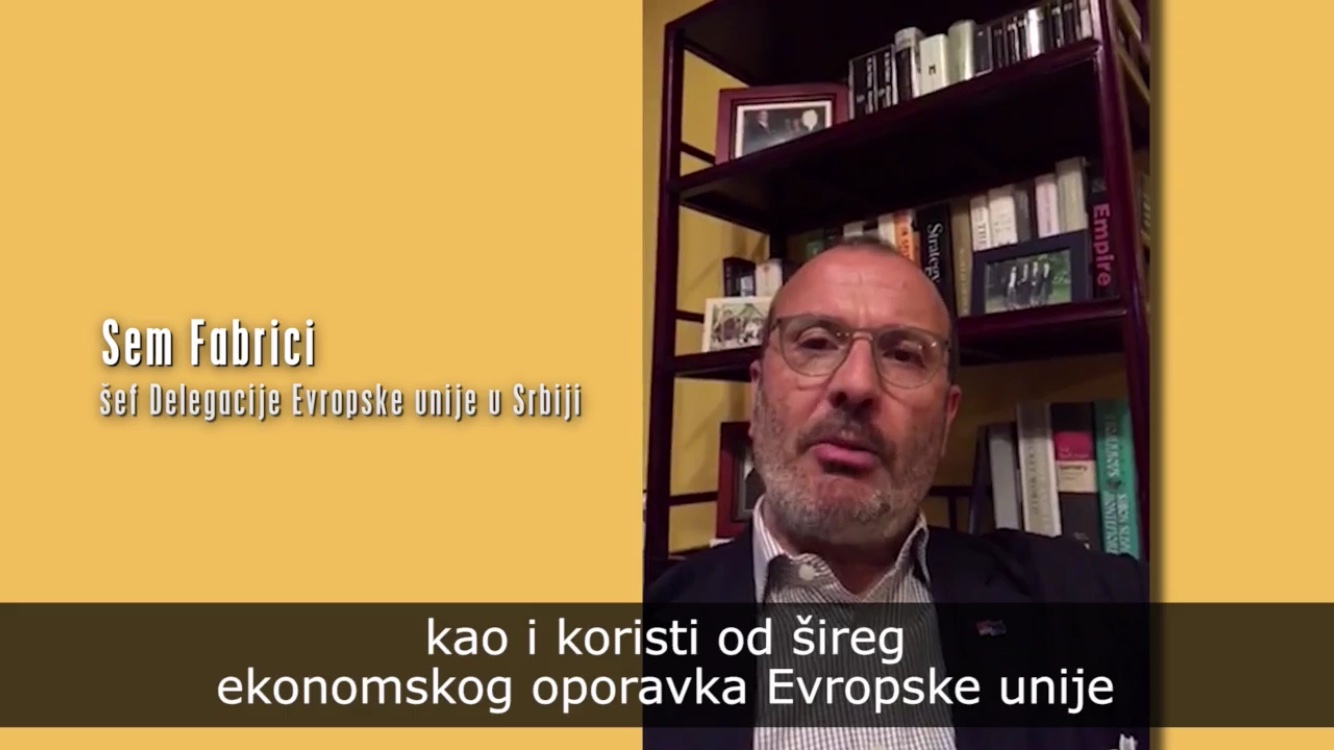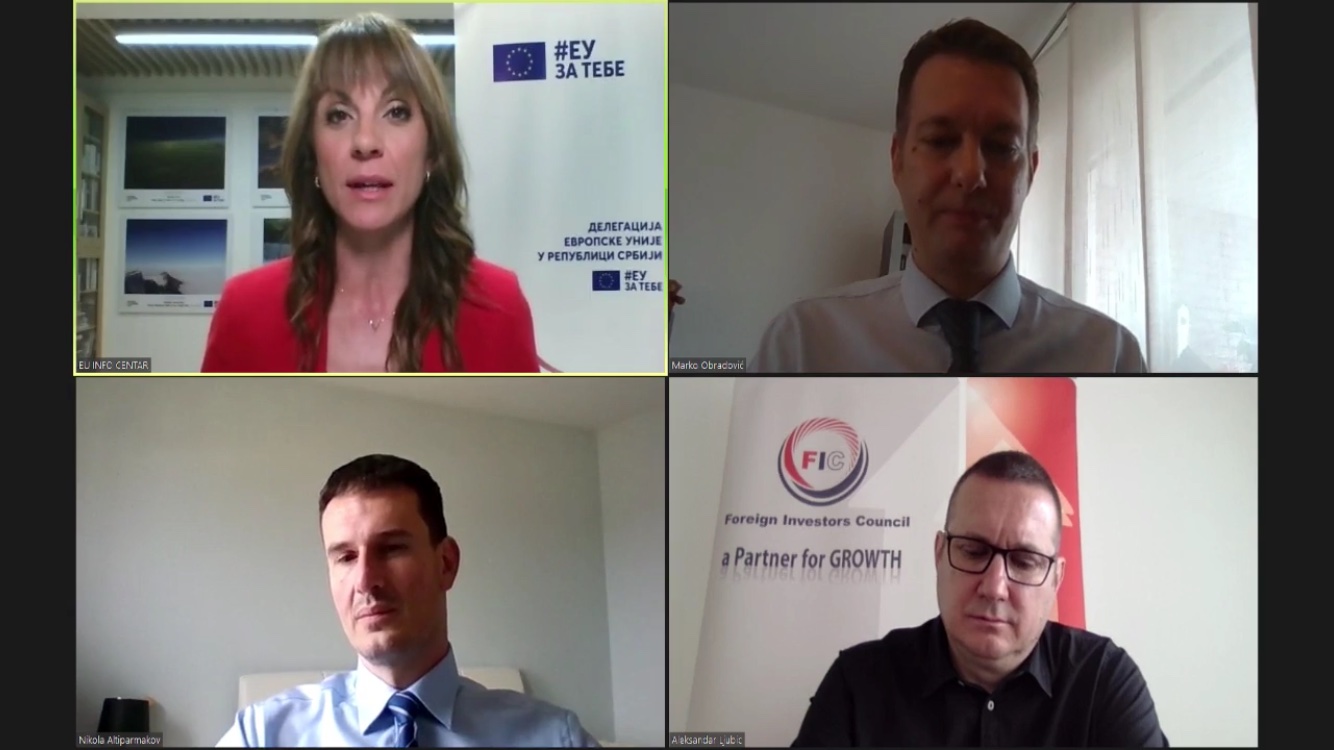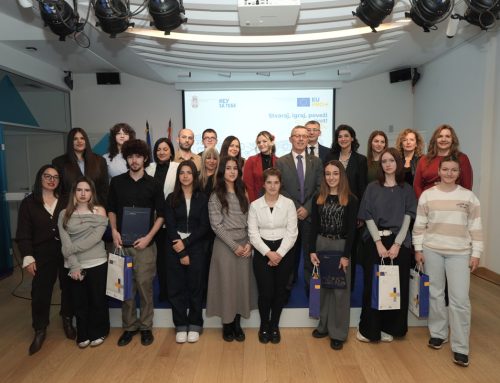Following the economic shut down as one of the measures to stop the spread of coronavirus, economies are slowly opening up. According to participants of a webinar organised today by the European Union Delegation to Serbia and the European Policy Centre, the speed of Serbia’s recovery will depend on the speed of recovery of its main trade partners, i.e. European Union Member States.
Head of the EU Delegation to Serbia Ambassador Sem Fabrizi and President of the Serbian Chamber of Commerce Marko Cadez, who opened the webinar, agreed that the post-pandemic economic recovery of different countries is interdependent.
“A swifter and stronger recovery in the EU—supported by unprecedented measures that are currently the topic of the EU leaders’ conversation in Brussels—will undoubtedly bolster the Serbian economy, especially through trade and investments. The combination of reforms implemented on the EU path, EU’s financial support for Serbia, and benefits brought by a wider economic recovery of the European Union will all greatly contribute to Serbia’s economic perspective. That is why we are turning the response to COVID-19 into an opportunity for a stronger partnership between the European Union and Serbia,” Ambassador Fabrizi explained.

“We can hardly expect any new measures before September, that is before the parliament is formed.Until then, we must make sure we’re ready. We are looking at draft laws in different EU countries, such as Slovenia and Austria, and the way they are planning decisions that previously weren’t in line with anti-trust law,” said Čadež, noting that “there can be no recovery without global, and above all, European economic recovery.”
One of the international financial institutions that has focused its actions on dealing with consequences brought by the slowing down of economy is the European Investment Bank. Head of EIB’s Regional Representation for the Western Balkans Dubravka Negre stressed that the goal is to support the health sector, but also to help small and medium business tomaintain liquidity.
“Each country has its own set of measures; but international banking institutions are there to support the banking sector and allow it to offer more affordable funding, especially for the most vulnerable parts of the economy,” Negre noted.
For certain sectors, however, such a support may not be enough. Estimates show that some sectors, such as hospitality and tourism, may not recover for another three to five years and may not be able to keep all jobs, a member of the Fiscal Council, Nikola Altiparmakov, pointed out.
“The state should not be focused on helping different sectors, but on helping workers; those employed in tourism or auto industry are the ones who will surely lose their jobs and they should therefore be offered help to switch to another industry,” Altiparmakov said.
European Policy Centre associate Marko Obradovicdescribed government measures as appropriate and noted that the banking sector managed to maintain stability and that the progress in IT contributed considerably to fighting the pandemic.
“I would say that five years ago it would be impossible to implement the same measures. To have a government or a bank open a bank account on your behalf and to have everything within your reach with a simple computer click has revealed the power of this sector and it has proven that IT is one of Serbia’s biggest opportunities for the future,” Obradovic said.
The Chamber of Commerce announced that switching to contactless ways of doing business will be one of the priorities in the coming period.
This isn’t just an economic, but also a social crisis, said Executive Director of the Council of Foreign Investors Aleksandar Ljubic and noted that he expects the world to change after the pandemic.
“Remember that travel was never the same after 9/11. I therefore believe that the world will not work the way it did before the crisis. I believe many things will change in the way we communicate, do business,etc.,” Ljubic stressed.
The discussion was part of a series of debates organised by the EU Delegation and the European Policy Centre, with the aim to bring citizens closer to the topic of EU accession process and include them in the conversation.




